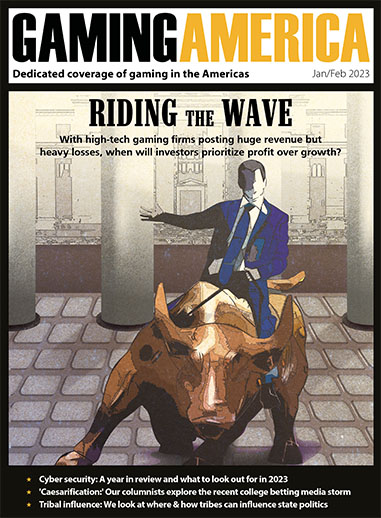
It’s crunch time for online gaming firms. Global regulators have stepped up their crackdown, with fines totalling over $127m worldwide handed out during 2022. Already, this is almost three times the $48.6m levied on betting companies in 2021.
One of the major drivers behind the increase in fines issued to gaming firms has been the ever-growing issue of identity verification. The world is increasingly moving online, and the gaming industry is no different. In fact, industry figures suggest that nearly 90% of all wagers are now placed online. It’s become easier than ever for people to place bets pretending to be somebody they’re not.
And this issue has become prevalent in the USA. In 2022, the New Jersey Division of Gaming Enforcement ordered DraftKings to pay $150,000 for allowing a Florida-based customer to wager on its sports betting app via a proxy in New Jersey.
There are many similar cases in America and the impact on firms is damaging not just financially, but also reputationally. If a brand isn’t seen to adhere to the correct rules and regulations, especially when it comes to something as morally sensitive as gaming, then operators risk alienating themselves from the wider community and potential customers.
"From a user experience perspective, the direct involvement between customers and online casinos means the delicate balance of increasing security while maintaining a low friction is achieved."
THE AGE OF IDENTITY VERIFICATION
In today’s digitally dominated world, online impersonation in the gaming industry is commonplace. Because US states are free to legislate different forms of gambling on an individual basis, requirements can differ, even in states that neighbor each other or have otherwise similar laws.
For online firms, there’s a huge challenge in ensuring that bets are being placed legitimately and that customers are eligible to bet. As such, overhauling processes around identity verification – from correctly checking age and location to identifying customers with betting problem histories – must be a priority for online betting companies.
THE CURRENT PROCESS
When people sign up to use an online gaming service, they provide personal information to confirm their age. They sign up using their first and last name, date of birth, social security number and ID to confirm whether that individual is who they say they are; and to ensure they aren’t creating a duplicate account. Often, this process is lengthy, intrusive and easier to fake.
Added to this, many also use photo or video facial identification technology, which utilizes machine learning to analyse an individual’s looks and determine whether they are above the legal age to gamble. This, however, isn’t always accurate, meaning some users slip through the net. Put simply, some people just look older than they are!
It can also be expensive and, from a user’s perspective, can feel clunky and intrusive as they try and get the perfect angled shot. This friction in the authentication process risks customers either abandoning their effort signing up or contacting support, both of which cost money for businesses.
THE SOLUTION
The fact is that in most countries gamblers who use mobile devices account for about 88% of all punters in the industry. So, wouldn’t it be easier all round if identity verification was linked to the mobile usage of online punters?
There’s technology available that online casinos can use which is more effective at verifying an individual’s identity, including their age, and it’s all done via their mobile phone number. Utilising data gathered from over 80 countries every day – including trusted sources such as telecoms companies and mobile network operators, regulators and third parties – this technology can strengthen the onboarding process for businesses, reducing impersonations and accurately verifying a user’s identity, just from their mobile phone.
This real-time data is fast, accurate, reliable and minimizes the chances of online impersonation. It’s also a cost-effective alternative to other technologies on the market. And from a user experience perspective, the direct involvement between customers and online casinos means the delicate balance of increasing security while maintaining a low friction is achieved.
"Friction in the authentication process risks customers either abandoning their effort signing up or contacting support, both of which cost money for businesses."
MOVING AHEAD
This type of mobile number intelligence technology is also evolving. In 2023, we should expect to see the introduction of new approaches that reduce the barriers for identity verification while offering improved security. One way – silent authentication – removes the need for a one-time-password (OTP), as providers can do identity checks in the background without requiring users to wait or leave their app.
Specifically, it uses direct carrier connections to verify possession of a phone number without requiring user input – a huge step forward in terms of user experience.
Ultimately, mobile-based online gaming isn’t the future; it’s happening in the here and now. The quicker betting firms understand this and adopt the appropriate technology, the sooner they protect themselves from receiving hefty fines, and damaging both their finances and reputation in the age of identity verification.

